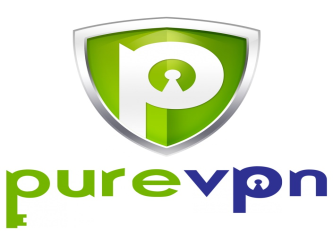For as much as we are becoming accustomed to using mobile devices for our day-to-day communications, hacking threats for these devices are registering a sharp spike. We are facing a number of new mobile threats including phishing, spoofing, DDoS Attacks, and identity theft. Individuals, small businesses, corporations and even governments are in dire need of hacker protection.
List of Big Hacking events of 2013:
To put the entire issue of hacking protection in perspective, here is a list of the biggest hacking events of 2013:
1. Microsoft was attacked by hackers in January 2013, and about 1 billion users were affected by this attack.
2. Facebook was attacked in February 2013, and about 1 million people were affected with malware.
3. In late February 2013, hackers attacked NBC using Citadel Trojan.
4. Twitter was hacked in February 2013, and hackers obtained access to over 250,000 user accounts, including their personalized passwords.
5. Evernote Corporation was attacked in March 2013, where hackers gained access to Evernote’s users’ information.
Featured Download: CISO Data Breach Guide
These giant corporations all presumably use strong security measures, yet hackers somehow found loopholes to get access to their databases anyway.
So, what should you do? Well, here are some tips we can use for basic hacker protection:
1. Always Use Safe and Secure Networks
When you connect your device to a shared network, such as a public Wi-Fi hotspot at a coffee shop, you connect by proxy to all of the other devices on that same network. The information always flows in two directions, i.e. from your device to the router and then back to your device. When you’re setting up a private network, be sure to secure your network’s first point of contact with the Internet. If you are connecting your device to an ISP via WiFi, always use a trusted hacker protection tool like VPN.
2. Use Anonymous and Trusted VPN Technology
VPN technology is the best solution for protection against hackers. Well-trusted VPN services like PureVPN provide their users complete anonymity and a layer of hacking protection. Once connected using VPN, users’ original IP addresses are masked with other IPs from the VPN provider’s network. A strong layer of encryption secures the data from being intercepted, and a tunnel constructed through military-grade protocols support the two-way communication while eliminating many vectors of intrusion. PureVPN is among the world’s best VPN provider with the VPN network already into 61 countries – and it is expanding fast. It uses 256-bit encryption that makes it difficult for hackers to intercept the conversation.
3. Always Select a Secure Browser
There are plenty of Web Browsers available in the market, but you need to choose one that’s safe and secure. You can enhance the security of your Web Browser by blocking third party cookies. The most famous browsers like Chrome, Firefox, Opera and Safari allow you to easily tweak your cookie storage and other settings.
4. Install and Continually Update your Antivirus
Always use authentic and recognized antivirus software, and don’t fall for fake security solutions. Also, always make sure that you are updating on a timely basis, especially when it comes to your operating system, security software and browser.
5. Always Go for Secure Email Services
Email is one of the most common channels by which hackers expose your personal information, so there are many secure email services that are designed to keep users’ data private. Additionally, it is always secure to use anonymous email services if you don’t expect an email in return, especially when sending an email to an non-trusted person.
Conclusion:
“Prevention is Better Than Cure”
Every 1 out of 8 people are facing threats from hackers. Many legitimate cybercrime prevention bodies are working to stop this devilish act all over the world, but it the prevalence of cybercrime is still increasing. Therefore, in order to protect ourselves, we need to be aware of all the ways by which we can ensure the safeguard of our online identity.
By Fahad Ali, Digital Partnership Specialist, PureVPN
 Since 2007, PureVPN has grown into one of the biggest players of the VPN industry. With continuously expanding server base, server locations, compatible software, data encryption tools, authentication protocols, customer support options and payment methods, PureVPN has been relentlessly working towards delivering the best value to its customers. The rapidly increasing subscribing base of PureVPN is testament to its success.
Since 2007, PureVPN has grown into one of the biggest players of the VPN industry. With continuously expanding server base, server locations, compatible software, data encryption tools, authentication protocols, customer support options and payment methods, PureVPN has been relentlessly working towards delivering the best value to its customers. The rapidly increasing subscribing base of PureVPN is testament to its success.
The opinions expressed in this post belongs to the individual contributors and do not necessarily reflect the views of Information Security Buzz.



